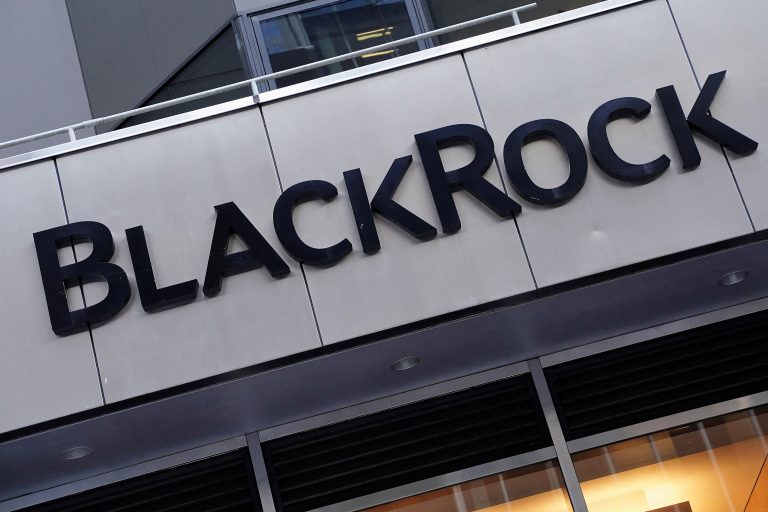
BlackRock’s foray into the world of decentralized finance (DeFi) marks a significant milestone in the integration of traditional financial structures with blockchain technology. The asset management giant has recently made headlines with its $500 million tokenized fund, which is now eyeing an investment plan focused on Real World Assets (RWA). This move underscores a growing trend where traditional financial entities are not only acknowledging but actively participating in the burgeoning DeFi space.
The BUIDL fund, as it is known, represents BlackRock’s commitment to innovation within the digital asset space. The fund’s rapid accumulation of assets under management (AUM) is a testament to the increasing interest and confidence in tokenized financial products. The BUIDL fund, which stands for BlackRock USD Institutional Digital Liquidity Fund, has amassed over $500 million in AUM in just three months.
Ethena, a protocol behind the $3.4 billion yield-generating “synthetic dollar” token USDe, is planning to allocate a portion of its reserves to tokenized RWA offerings, and BlackRock’s BUIDL fund is among the first to pitch for this allocation. This strategic move by Ethena could potentially lead to a significant allocation from its $235 million USDT stablecoin collateral and $45 million surplus reserve to BlackRock’s fund.
Register for Tekedia Mini-MBA edition 19 (Feb 9 – May 2, 2026): big discounts for early bird.
Tekedia AI in Business Masterclass opens registrations.
Join Tekedia Capital Syndicate and co-invest in great global startups.
Register for Tekedia AI Lab: From Technical Design to Deployment (next edition begins Jan 24 2026).
The concept of tokenized RWAs is not entirely new in the DeFi ecosystem. MakerDAO and Ethereum layer-2 Arbitrum’s development organization have taken similar actions in the past. However, BlackRock’s participation brings a new level of credibility and mainstream acceptance to the practice. The BUIDL fund’s pitch for a $34 million allocation from Ethena’s reserve is a clear indicator of the fund’s ambition and the potential for growth in this sector.
Tokenization of RWAs involves the representation of real-world assets like real estate, commodities, or corporate debt on the blockchain. This process offers several advantages, such as increased liquidity, fractional ownership, and the potential for creating more efficient markets. For BlackRock, this represents an opportunity to bridge the gap between traditional finance and DeFi, providing its clients with exposure to innovative yield-generating strategies.
One of the primary concerns is regulatory compliance. Tokenized RWAs must navigate a complex landscape of legal frameworks that vary by jurisdiction. Ensuring that these assets comply with local regulations is crucial to avoid legal repercussions and maintain investor trust.
Another significant risk is the custody and security of the tokenized assets. Effective custody solutions are essential to prevent the loss, theft, or mismanagement of tokens. The digital nature of these assets makes them susceptible to cyber-attacks, requiring robust security measures to safeguard investments.
Tax reporting challenges also arise from the sale or trade of tokenized assets. Investors and issuers must be prepared to handle the intricate tax implications associated with these transactions.
Furthermore, the tokenization process can be complex and bureaucratic, potentially introducing more barriers compared to traditional financing methods. This complexity can lead to a slower adoption rate and uncertain demand for tokenized assets.
Lastly, there is the risk of smart contract vulnerabilities. Since tokenized RWAs rely on blockchain technology, any bugs or flaws in the smart contract code can lead to financial losses and affect the integrity of the asset.
Despite these risks, the potential of tokenized RWAs to revolutionize the financial industry remains significant. Investors and issuers alike must approach this emerging market with due diligence and a comprehensive understanding of the associated risks and rewards.
The implications of BlackRock’s involvement in tokenized RWAs are far-reaching. It signals a shift in how institutional investors view blockchain technology and its applications. By leveraging the transparency, security, and efficiency of blockchain, BlackRock is positioning itself at the forefront of a financial revolution.
As the DeFi space continues to evolve, it will be interesting to observe how traditional financial institutions adapt and contribute to its growth. BlackRock’s $500M tokenized fund and its RWA investment plan could very well be the catalysts for a new era of financial innovation, where the boundaries between the traditional and digital realms become increasingly blurred. The success of this venture could pave the way for other institutional players to follow suit, potentially leading to a more inclusive and democratized financial system.



